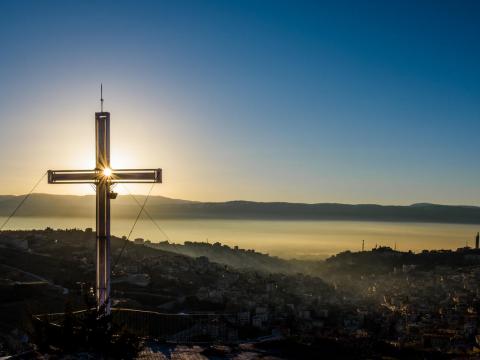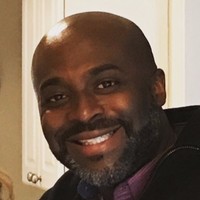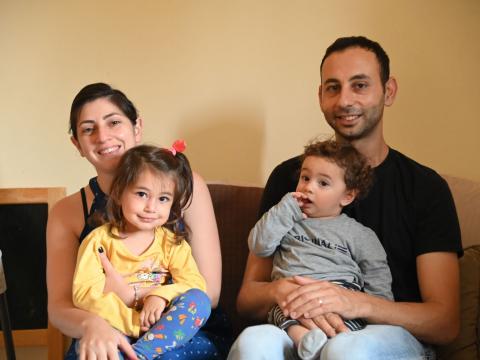
My prayer for black lives in this time of COVID-19
By Odoi Odotei, Director of Learning & Development, Faith & Development
I was five years old, walking to school one morning. I recall with pain now, many years later, being harassed, called racist names, and pushed down a hill by a few older boys. As the sole black child attending a small elementary school in West Virginia, U.S.A., I was frequently the target of derision and hate by my schoolmates – and even some adults. I remember being confused about why it was happening. Until one day, I was no longer confused, I just accepted that it was my reality.
I, like so many other Black Americans, have held the cup filled with the unending “unjust rhythms of racialized violence”[1] my entire life. This burden has been painful, wearisome and has left indelible scars on my life. Though many of us have prayed that the Father would take this cup from us, we have borne the burden, the indignity, and, for far too many, murder as the outcome of these hostilities. Now that I am the father of a black child, the idea that I will need to pass this cup of burden to my son — from one generation to yet another in a succession of generations — fills me with a weariness mere words cannot fully express.
As the world mourns the deaths of Ahmaud Arbery, Breonna Taylor, George Floyd, and Rayshard Brooks, among so many others, I recount my own experience within our stained history of racial inequality alongside countless black children, victims of racist violence, here in the United States. Children like Emmett Till (dead at 14), Addie Mae Collins (dead at 14), Cynthia Wesley (dead at 14), Carole Robertson (dead at 14), Carol Denise McNair (dead at 11), Tamir Rice (dead at 12), and Trayvon Martin (dead at 17), sadly, along with many others who are unknown and unseen. If you research their names, you will notice the tentacles of violence towards black children in the United States have entered our schools, public parks, churches, and private residences. When injustice rears its horrendous head, it is often the youngest amongst us who become the victims of its machinations.
Data shows that in a number of the world’s richest countries, COVID-19 has disproportionately affected and killed ethnic minority groups who are also often the victims of poor economic and social conditions that worsen the effects of the disease[2].
Now, in a time where COVID-19 has taken the life’s breath of nearly 500,000 people globally, black people with weakened voices struggle to cry out, “we, too, can’t breathe,” as they are strangled by the systemic, pervasive, and inhumane chains of racism. The recent ‘Black Lives Matter’ movement that has extended beyond the U.S. speaks to the vulnerabilities felt by a significant proportion of our global population. Thousands of peaceful protesters have gathered across the U.S., Europe, Africa, and Asia, protesting the death of George Floyd and systemic racism around the world.[2]
As I am troubled by the unjust treatment of black people, and many other ethnic minorities, in the U.S. and around the world, I take heart working for an organisation that has a corporate commitment in our Mission: “to follow our Lord and Saviour Jesus Christ in working with the poor and oppressed to promote human transformation, seek justice, and bear witness to the good news of the Kingdom of God.”
I lament the unjust, centuries-old treatment of black people. This sorrow and longing for justice connects to the lament that was central to our founding. It was from Bob Pierce’s broken heart over the suffering of children that God planted seeds of hope in the lives of the men and women who created our organisation — our World Vision family. Pierce’s lament to God broke through and created countless opportunities for each of us to serve in Christ’s name for the well-being of the world’s most vulnerable children.
It's more important than ever, at this time, to keep following Jesus Christ, to keep working in His name, for His justice, and for His truth as He calls us — unequivocally — to care for the marginalised and oppressed.
It is my prayer that we move forward together — supported by prayers and actions. In this time, let us remember the words of the Reverend Dr Martin Luther King Jr, arguably the United States’ most effective Civil Rights leader:
“When our days become dreary with low-hovering clouds and our nights become darker than a thousand midnights, let us remember that there is a great benign Power in the universe whose name is God, and He is able to make a way out of no way, and transform dark yesterdays into bright tomorrows. This is our hope . . . This is our mandate for seeking to make a better world[3].”
This, too, is our prayer.
NOTE: If you have experienced discrimination or harassment within World Vision, we want you to report it. Please do so under the employment policies applicable to you. You can also make a confidential report to the World Vision Integrity and Protection Hotline at https://worldvision.ethicspoint.com.
[1] King, Martin Luther King. Strength to Love. Cleveland Ohio: Collins + World, 1977, p. 117.
[2] https://www.cdc.gov/coronavirus/2019-ncov/need-extra-precautions/racial-ethnic-minorities.html and https://www.gov.uk/government/publications/covid-19-understanding-the-impact-on-bame-communities
[3] https://www.fuller.edu/posts/fuller-denounces-unjust-rhythms-of-racialized-violence/

